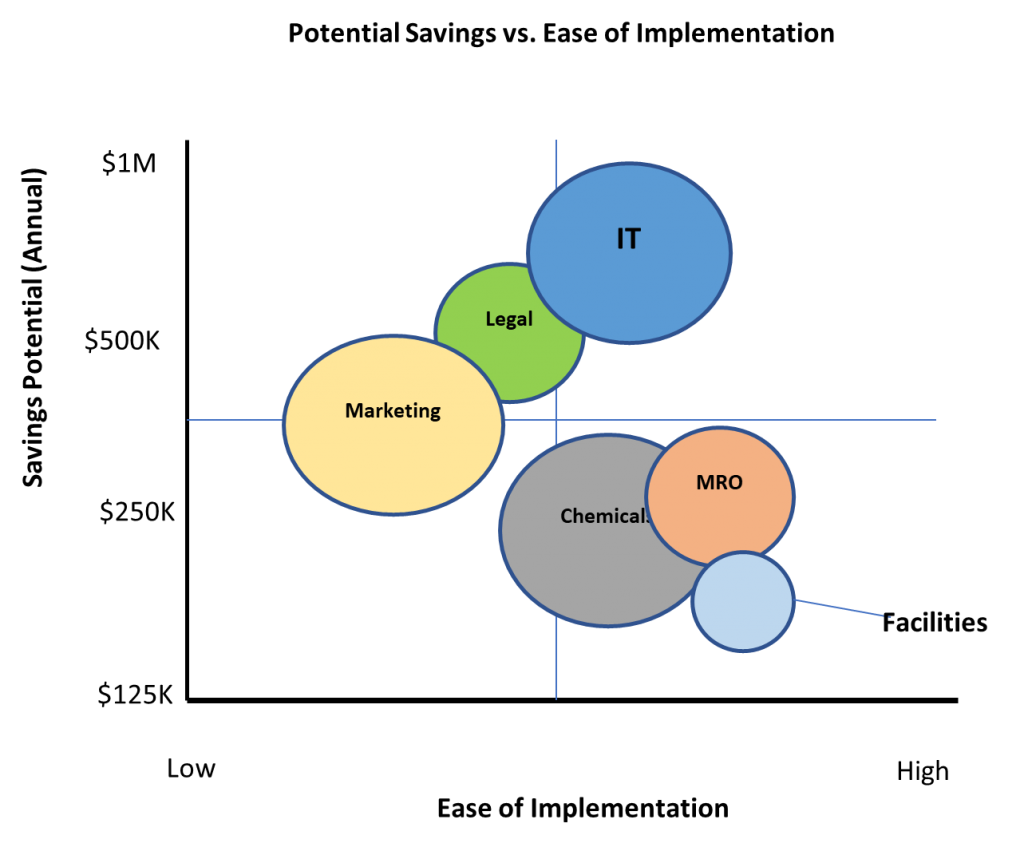Marketing Yourself As Independent Consultant
Independent consultants are finding an increasing number of project opportunities that offer interesting assignments, sought-after flexibility, and highly competitive pay. In fact, many consultants and executives believe that being an independent consultant is a terrific way to catapult their career by gaining a greater degree of exposure to specific functional domains and industries, leading to a more satisfying and varied work experience. Additionally, specialized companies such as OnDemand Resources, have made finding the “ideal consulting assignment” easier and more accessible than ever.
However, securing a steady stream of desirable contract work requires a different skill set and mindset from landing full-time employment at a corporation. To help guide your efforts, we’ve collected “best practice” advice from some of our most successful network partners, members of the OnDemand Talent Network. Their practical wisdom will help guide your efforts to- wards securing phenomenal consulting projects.
The Resume
As an independent consultant your resume is the most important document that a potential hiring manager will review. It’s therefore critical that you take the extra time to really understand the engagement and tailor your resume to satisfy the exact profile the client is seeking. When selecting specific examples to illustrate relevant work experience, describe five or six specific skills that directly relate to what the hiring manager requires to successfully complete the project assignment. Further, don’t just list what you did for a particular firm; instead speak to your accomplishments and the results that you produced for them. For example, rather than saying that you managed seven people and led a $20 million sourcing initiative, identify that your efforts generated over $15 million in cost reductions.
It’s also helpful to list the areas that you’ve worked in. If you’re applying for a sourcing position list the categories and verticals that are relevant. A key selling point of independent consultants is the fact that they’re able to bring deeper “hands-on” experience to the table than can be found with a full-time employee.
The basic tenants of resume writing are also applicable in the independent space. The resume should have a good format with content that is complete and easy to follow, it should be grammatically correct, and it should be concise. Ideally, it should contain a summary of skills at the top and an objective line that speaks to the position that you’re applying for, along with a short summary of core competencies underneath. It’s very helpful to dedicate the top part of the resume to “on-point” experience as it relates to a particular opportunity.
The Interview
While major corporations typically hold a string of interviews with numerous people for candidates to sell themselves, contracting positions generally offer one 30 minute meeting. First impressions are often the only impression independent consultants get to sell themselves and simultaneously address concerns. Therefore, when you’re interviewing for a contract position there are some critical components that you need to consider and proactively address.
First, put yourself in the hiring manager’s shoes and anticipate what they want to hear about. Use specific examples to demonstrate that you’re able to match their particular project requirements and be as detailed as possible. Educate clients that they could never hire somebody with your vast background as a full-time employee because you bring timely experience from a wide breadth of companies and assignments. A hiring manager wants to be reassured that you will successfully deliver the project. One way to accomplish this during the interview is to make comments that reveal your expertise about what’s happening in a particular category or space, that you are aware of trends, threats, and opportunities. For ex- ample, over the last 12 months I’ve worked with three companies and have seen X, Y, and Z.
Let the hiring manager know that you’ll “jump in,” get the work done strategically, and tactically hit the ground running. Communicate the immediate impact that you can make based on the breadth of service and experience that you have to offer. Talk about the variety of assignments you’ve successfully completed to demonstrate that you already possess the knowledge, education, and skills to accomplish what your potential manager requires without coaching or on-site training. Hiring managers often choose to retain consultants because they don’t want to waste their time managing somebody – people hiring consultants typically lack time! It’s therefore critical that the hiring manager thinks that you’ll be easy to manage and will deliver results autonomously.
A “can do” attitude will help you secure a consulting position. Conversely, a negative demeanor will ruin your chances of securing a job. Never bad mouth former clients or exude a negative attitude. This will make people wonder what you might say about them. Potential employers don’t want to hear that a former client or project was a “mess.” They don’t want a troublemaker or a complainer, and they certainly don’t want to deal with any problems. Further, don’t complain about doing any grunt work. All consulting projects have some mundane tasks that you’ll need to deal with.
Establish a rapport, but be as professional as possible. The right cultural fit is a determining factor for hiring managers selecting a candidate. Remember that you’re being hired on an interim basis and that these people will not be a co-worker for long. The hiring manager isn’t interested in whether their team can “hang out” with you during lunch, rather that you have the influencing skills to immediately earn the respect of those around you and that you can negotiate the bureaucracy of the organization. The hiring manager also wants to know that you can work across enterprise with little authority or credibility and have the influencing skills to immediately earn respect.
Finally, focus on getting the job at a strategic level. Don’t bring up the tactical logistics or exact terms of your potential contract up front. Wait until they want to hire you first. It’s OK to set expectations early, but it’s more important to win-over the hiring manager, get the job, and then discuss the details of your work requirements. Remember that unlike interviews for full-time employment, your time to sell the hiring manager on your capabilities is extremely limited and it’s therefore not a good idea to spend that time talking about the details of your future flight arrangements! If you’re working with a specialized firm such as OnDemand Resources, you don’t have to worry about the tactical aspects of your contract because they will take care of this for you.
Setting Your Own Expectations
Realize that every time you walk into a new consulting assignment with a new client you’ll need to prove yourself. A hiring manager isn’t going to hand over their business and trust you until they feel comfortable with you and have a positive experience with you first. Also, keep in mind that that you’re not being hired to come in and manage a big team. Unlike being a full-time employee, you’re being hired for the short-term to come in with an ultimate focus, to deliver what the client needs, and then leave. This is a different mindset than a full-time employee.
Networking
Social networking is important as an independent consultant. Given that you are always working on an interim basis, it’s critical that you make maintaining your rolodex a top-priority. Those who are really successful in this business are always reaching out to those they’ve worked with and have numerous contacts regardless of role. Somebody who’s an analyst now may move on to a director of sourcing or could be a key influencer at a future job. Cultivating your network can be as easy as sending an occasional email, a phone call, or meeting somebody for a cup of coffee.
Joining specialized talent networks such as OnDemand Resources, are another way to expand your network to identify new assignments and opportunities. These specialized match makers are able to match your experience and skill set with appropriate opportunities and then place you on relevant assignments. These firms save independent consultants time, money, and more importantly are able to secure top consulting positions that individuals may not be able to identify on their own.
Set aside time in between jobs to attend key industry conferences to maintain and expand relationships with peers. Conferences also provide important education and training so that you can stay on the forefront of your specialty. It’s important to make sure you know what potential employers know – many of those people are taking the same training. Speaking at key industry events is another fabulous way to get your name out as a “subject matter expert.” Publishing articles in major trade publications, newsletters, and consulting magazines also opens up doors. You could even start a blog about a particular topic for peers.
Selecting a Project
Independent consultants should approach consulting opportunities with an open mind. The more rigid you are by fixating on a per day basis for salary, the less opportunities you will have. The wider your breadth and depth of experience, the more you might be able to command financially down the road as a “subject matter” expert. The fees can vary tremendously from job to job depending on the client. Matchmaking firms take a cut, but they also find you work and keep you busy. Some projects are worth taking just for the experience even if they pay less or aren’t your ideal choice because as a consultant your experience also serves as your education and you can be learning while earning.
Landing the Job – Readiness Checklist
- Take the time to thoroughly understand the specific requirements
- Research the organization to understand their market, staff, structure, and culture so you can speak intelligently about a particular assignment
- Check your rolodex and leverage any “inside” connections who are able to attest to your work ethic and capabilities
- Tailor your resume for a specific skills match and position your experience in light of the requirements of the engagement
- Prepare for the interview ahead of time by outlining the key points you need to communicate along with relevant examples of successful results
- Maintain a positive attitude during the interview, demonstrate through your professional demeanor that you can work autonomously, are easy to manage, and will fit seamlessly into their culture
- Keep discussions at a strategic level and avoid discussing tactical logistics until you land the job
- Send a thank you note reiterating why you’re an ideal match for the assignment




Tom Donatelli Joins OnDemand To Enhance Our Client Service Capabilities And Broaden Our Market Reach





